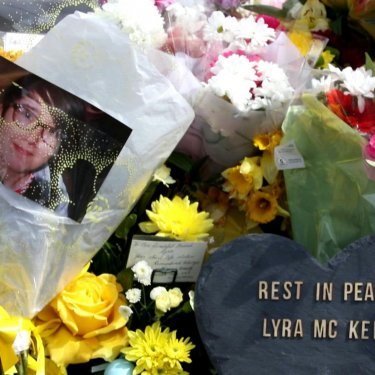Dispatch: One year after the killing of Lyra McKee, press freedom remains under threat in Northern Ireland

On the eve of the first anniversary of the killing of journalist Lyra McKee, Reporters Without Borders (RSF) reports on the worrying press freedom climate in Northern Ireland, including alarming ongoing threats to journalists covering organised crime and paramilitary activities, and a troubling legal environment. RSF calls on the UK authorities to address these serious issues as a matter of urgent priority to prevent further acts of violence, and to improve the broader press freedom situation in Northern Ireland and the wider UK.
RSF has published a dispatch examining the press freedom situation in Northern Ireland, following a research mission to Belfast and Derry in early March. Representatives of RSF’s UK bureau interviewed journalists, lawyers and civil society representatives, and visited the site in the Creggan area of Derry where Lyra McKee was murdered on 18 April 2019 - the first killing of a journalist in the line of duty in the UK since the assasination of Martin O’Hagan near Belfast in September 2001.
The report details McKee’s killing and developments in the murder investigation that followed; the serious ongoing risks faced by journalists who report on organised crime and paramilitary activities; and a worrying legal climate, including the landmark case against investigative journalists Trevor Birney and Barry McCaffrey, whose heavy-handed treatment by police in connection with the source materials used in their film investigating the Loughinisland massacre could set an internationally important precedent.
“The situation of press freedom in Northern Ireland is of serious and growing concern. We were shocked by some of the reports we received from journalists in Belfast and Derry, who are clearly among the most at-risk reporters in the UK. As we remember and honour Lyra McKee, we must also act to protect those who continue to take great risks to report information in the public interest. These issues must be addressed by the UK authorities as a matter of urgent priority to prevent further acts of violence”, said RSF UK Bureau Director Rebecca Vincent.
RSF also underscores the pressing need for justice for Martin O’Hagan; no one has ever been convicted in connection with his 2001 assassination. Ending violence against journalists in Northern Ireland will require addressing both historical impunity and active acts - and threats - of violence.
The report contains a series of recommendations to the UK authorities on measures needed to address these serious concerns. If the UK government is serious about its stated priority commitment to championing media freedom globally, it must also address these pressing domestic concerns without further delay.
The full report is available for download below.
The UK is ranked 33rd out of 180 countries in RSF’s 2019 World Press Freedom Index.



